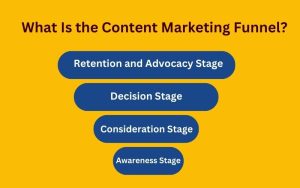What Is On-Page SEO?
In the ever-evolving world of digital marketing, search engine optimization (SEO) plays a crucial role in improving website visibility and driving organic traffic. While off-page SEO focuses on external factors like backlinks and social signals, on-page SEO encompasses the strategies employed directly on a website to optimize its content and structure for search engines. This article aims to provide a comprehensive understanding of on-page SEO techniques, their significance, and how they can be effectively implemented to enhance search engine rankings.
1.Keyword Research and Optimization
Keyword research serves as the foundation of on-page SEO. It involves identifying relevant keywords and phrases that align with your content and target audience’s search queries. By utilizing keyword research tools and considering factors such as search volume and competition, you can optimize your website’s content and metadata effectively. Incorporating keywords strategically into titles, headings, body text, URLs, and meta descriptions can signal search engines about your content’s relevance, improving the chances of higher rankings.

2.Compelling and Optimized Content
Creating high-quality, informative, and engaging content is paramount for on-page SEO success. Search engines favor websites that provide value to users. Ensure that your content is well-structured, easy to read, and includes relevant keywords naturally. Employing subheadings, bullet points, and appropriate formatting improves readability and helps search engines understand the content’s organization. Additionally, incorporating multimedia elements like images, videos, and infographics can enhance user experience and increase time spent on the page.
3.Meta Tags and Descriptions
Meta tags and meta descriptions are HTML elements that provide concise summaries of a web page’s content. Including relevant keywords and a compelling call-to-action in these tags can significantly impact click-through rates from search engine result pages (SERPs). A well-crafted meta description can entice users to click on your link, driving organic traffic to your website. However, it is important to avoid keyword stuffing and ensure that each meta tag and description accurately represents the page’s content
4.URL Optimization
Optimizing URLs is another crucial aspect of on-page SEO. Search engines prefer user-friendly URLs that are concise, descriptive, and include relevant keywords. Including target keywords in the URL structure can help search engines understand the page’s topic and improve its visibility. Additionally, using hyphens to separate words in URLs enhances readability and ensures proper indexing by search engines.

5.Title Tags and Headings
Title tags are HTML elements that define the title of a webpage. Crafting unique, descriptive, and keyword-rich title tags is essential for on-page optimization. Including the target keyword near the beginning of the title tag can enhance its relevance. Headings, such as H1, H2, H3, etc., break up the content into logical sections and provide a hierarchical structure. Optimizing headings with relevant keywords improves both user experience and search engine crawlers’ understanding of the page’s content.
6.Internal Linking and Site Structure
Internal linking refers to the practice of linking one page on your website to another. It helps search engines discover and crawl different pages on your site, while also establishing relationships and hierarchy between them. Properly interlinking related content can distribute link equity, increase page authority, and improve user navigation. Additionally, creating a well-organized site structure with intuitive menus and categories enhances user experience and facilitates search engine indexing.
7.Mobile Optimization and Page Speed
With the increasing usage of mobile devices for browsing, mobile optimization has become critical for on page SEO. Mobile-friendly websites that offer a seamless user experience across different devices are favored by search engines. Responsive design, which automatically adjusts the website layout based on the screen size, is an essential aspect of mobile optimization. Ensuring that your website loads quickly is equally important, as page speed is a significant ranking factor. Compressing images, minifying code, and utilizing caching techniques are some methods to improve page speed and provide a smooth browsing experience.

8.User Experience and Engagement
User experience (UX) plays a vital role in on-page SEO. Search engines consider factors such as bounce rate, time on page, and click-through rates as indicators of user satisfaction. Optimizing your website for UX involves creating intuitive navigation, clear calls-to-action, and easy-to-use interfaces. By focusing on user engagement, such as encouraging social sharing, comments, and interaction, you can increase the visibility and credibility of your website.
9.Schema Markup
Schema markup is a structured data vocabulary that helps search engines understand the context and meaning of the content on your website. By implementing schema markup, you can provide additional information about your web pages, such as reviews, ratings, events, and more. This enriched data can be displayed as rich snippets in search results, increasing the visibility and click-through rates for your website.
10.Monitoring and Optimization
On-page SEO requires continuous monitoring and optimization to maintain and improve search engine rankings. Regularly check your website’s performance using tools like Google Analytics and Search Console. Analyze data related to organic traffic, keyword rankings, and user behavior to identify areas for improvement. Keep up with the latest SEO trends and algorithm updates to adapt your on-page strategies accordingly.

Conclusion
(Word Count: 200) On-page SEO is an integral part of any comprehensive digital marketing strategy. By implementing effective on-page optimization techniques, you can enhance your website’s visibility, increase organic traffic, and improve user experience. From keyword research and content optimization to metadata and site structure, each aspect plays a vital role in boosting search engine rankings. Continuously monitoring and optimizing your on-page SEO efforts will ensure that your website remains competitive in the ever-evolving digital landscape.





